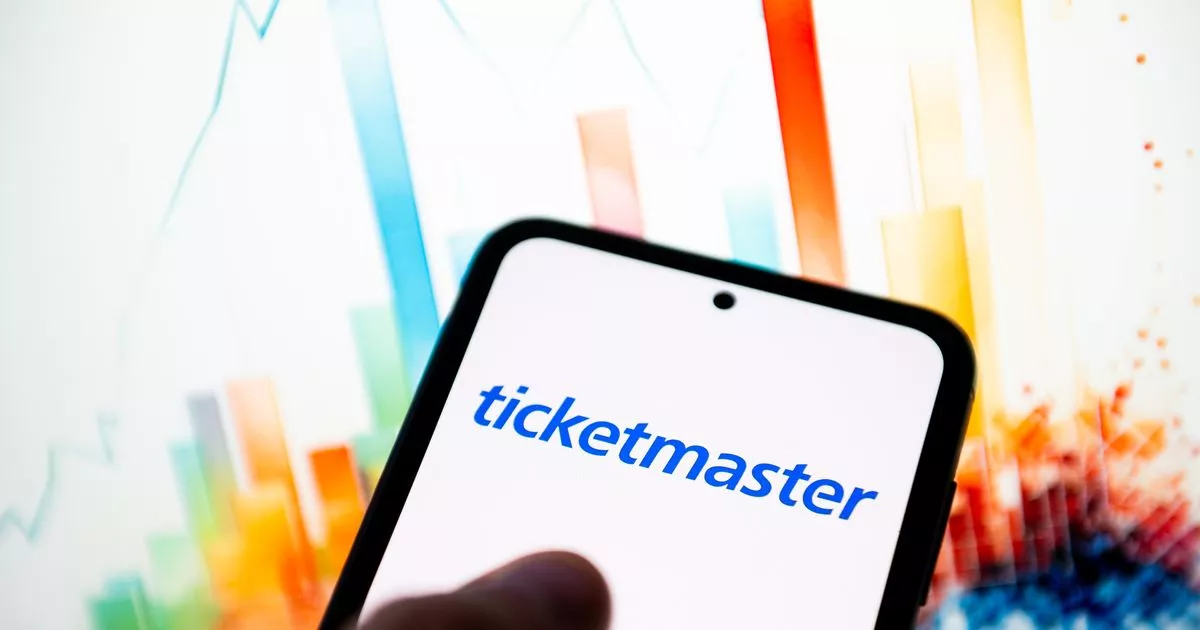Ticketmaster's Urgent Warning: Avoid Fake Ticket Sellers, Protect Your Money

Table of Contents
Identifying Fake Ticket Sellers: Red Flags to Watch Out For
Fraudulent sellers employ various deceptive tactics to lure unsuspecting buyers. Understanding these tactics is your first line of defense against becoming a victim. Be vigilant and look out for these common red flags:
- Significantly Discounted Prices: If a deal seems too good to be true, it probably is. Prices drastically lower than the official price are a major warning sign of a fake ticket seller.
- High-Pressure Sales Tactics: Legitimate sellers don't need to pressure you into a quick purchase. If you're being rushed or urged to make an immediate decision, be wary.
- Unusual Payment Methods: Avoid sellers who only accept payment through untraceable methods like wire transfers or gift cards. Legitimate sellers typically offer secure online payment options.
Spotting Suspicious Websites and Emails
The appearance of a website or email can often reveal its authenticity. Look for these red flags:
- Unprofessional Website Design: Poor grammar, spelling errors, and unprofessional website design are strong indicators of a scam.
- Missing Contact Information: Legitimate businesses always provide clear contact details. A lack of contact information should raise serious concerns.
- Suspicious Emails: Be wary of unsolicited emails promising incredibly cheap tickets from unknown senders. Check the sender's email address carefully. Always verify the sender's legitimacy before clicking any links. Look for secure connections (HTTPS) in the website URL.
Recognizing Unofficial Resellers
Understanding the difference between authorized and unauthorized resellers is crucial.
- Authorized Resellers: These are officially partnered with the event organizer or venue and offer genuine tickets with buyer protection.
- Unofficial Resellers: These individuals or platforms sell tickets without authorization, often at inflated prices, and with no guarantee of authenticity. They may offer suspiciously low prices, lack customer service, or have unclear terms and conditions.
Beware of Social Media Scams
Social media platforms like Facebook, Instagram, and Twitter are breeding grounds for fake ticket sellers.
- Unverified Sellers: Exercise extreme caution when buying tickets from individuals or groups on these platforms without proper verification.
- Due Diligence: Always verify the seller's legitimacy before engaging in any transactions. Check their reviews and look for any signs of suspicious activity.
Safe Ways to Buy Tickets: Official Channels and Verified Resellers
The safest way to ensure authentic tickets and protect yourself from scams is to use official channels or verified resellers.
- Buy Directly from the Source: Purchase tickets directly from the official vendor, such as Ticketmaster, or the event venue's website. This is the best way to guarantee authenticity.
- Benefits of Official Platforms: Official ticketing platforms offer buyer protection, secure transactions, and readily available customer support.
Using Ticketmaster's Official Website
Ticketmaster provides several features to ensure ticket authenticity:
- Secure Payment Gateway: Use Ticketmaster's secure payment gateway to make purchases.
- Order Confirmation: Always check your order confirmation email and keep it for your records.
- Customer Support: Utilize Ticketmaster's customer support if you have any questions or concerns.
Authorized Resellers
While buying directly from the official vendor is always best, some authorized resellers offer legitimate tickets. Always:
- Check Reputation: Research the reseller's reputation through online reviews.
- Verify Legitimacy: Ensure the reseller is officially authorized by checking their website and verifying their credentials.
- Read Terms and Conditions: Thoroughly review the terms and conditions before making any purchase.
What to Do If You’ve Been Scammed by Fake Ticket Sellers
If you suspect you've been scammed, take immediate action:
- Report the Incident: Report the scam to the relevant authorities, such as your local police department and the Federal Trade Commission (FTC).
- Contact Your Bank/Credit Card Company: Immediately contact your bank or credit card company to dispute the charges and potentially recover your money.
Protecting Your Financial Information
Preventing future scams requires proactive measures:
- Strong Passwords: Use strong, unique passwords for all online accounts.
- Secure Payment Methods: Use credit cards for online purchases, as they offer better buyer protection than debit cards.
- Avoid Sharing Information: Never share your personal financial information with untrusted sources.
Learning from the Experience
- Share Your Story: Sharing your experience can help warn others and prevent future scams.
- Learn More: Seek out resources to learn more about online safety and fraud prevention.
Conclusion: Protecting Yourself from Fake Ticket Sellers
Remember the key takeaways: identify fake ticket sellers by watching out for red flags like suspiciously low prices and unusual payment methods; prioritize official channels like Ticketmaster or verified resellers; and if scammed, report it to the authorities and your financial institution. The urgency to remain vigilant when purchasing tickets online cannot be overstated. Protect your money and your event experience by avoiding fake ticket sellers and purchasing tickets only through official channels like Ticketmaster. Don't become another victim; be informed and stay safe!

Featured Posts
-
 Wybory Prezydenckie 2025 Analiza Kampanii Mentzena
May 30, 2025
Wybory Prezydenckie 2025 Analiza Kampanii Mentzena
May 30, 2025 -
 Measles Outbreak Spreads Across Israel Following Texas Case
May 30, 2025
Measles Outbreak Spreads Across Israel Following Texas Case
May 30, 2025 -
 Us Measles Count Updated 1 046 Cases Indiana Outbreak Resolved
May 30, 2025
Us Measles Count Updated 1 046 Cases Indiana Outbreak Resolved
May 30, 2025 -
 Imunisasi Anak Rendah Kasus Suspek Campak Di Pohuwato Meningkat
May 30, 2025
Imunisasi Anak Rendah Kasus Suspek Campak Di Pohuwato Meningkat
May 30, 2025 -
 French Open Swiateks Continued Dominance Early Departures For Ruud And Tsitsipas
May 30, 2025
French Open Swiateks Continued Dominance Early Departures For Ruud And Tsitsipas
May 30, 2025
